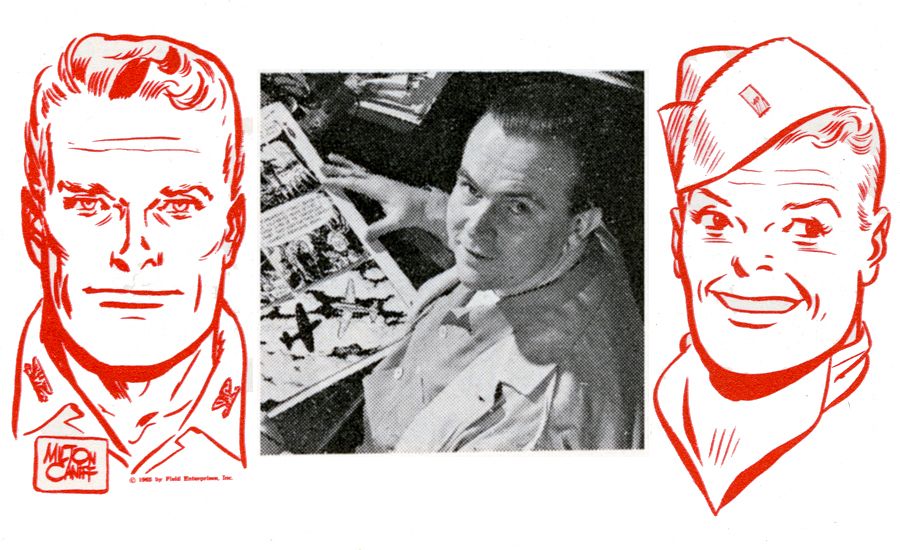Have you ever wanted to go back in time to thank someone for something—and then ached inside because it was no longer possible? Every so often I feel that way about a fellow by the name of Ferd Appel. Actually, it’s not that I’d like to thank Ferd Appel—though he did a lot for me—as much as I’d like to tell him something. I’d like to tell him what a success I think he was.
On the surface, Ferd simply wasn’t the kind of guy that you would single out as being successful. And he himself, I rather think, felt that he had been a failure. Yet over the years I have come to realize that he was wrong.
Ferd was the head of the art department of what was then the Dayton (Ohio) Journal when I was brought into his presence as a lad of 13. Some of my illustrations had just been published on the Boy Scout page of the newspaper and my father, a newspaper printer, felt that the time was ripe for me to get some real professional experience after school and on Saturdays.
READ MORE: PAUL HARVEY ON SUBMITTING TO GOD
I was frightened. In those days, the apprentice was completely dominated by his mentor and you worked just for the experience—there was no salary. Besides fearing what this new master of mine might be, I also was scared of the shop. Newspapers had a reputation for being pretty rough places.
True enough, there was a great deal more horseplay in newspaper plants then than there is now, and the freshman was normally the butt of countless practical jokes, a traditional hazing process. But I soon discovered that I had a friend in Ferd Appel.
From the moment I met him he seemed to treat me with a kind of respect. There was something about his attitude that seemed to say that I was not just a kid there to wait on him, I was a fellow artist. From that first day Ferd Appel made me feel that if I worked hard I could become good at my trade. He gave a 13-year-old a sense of dignity.
Ferd was a lean and waspish man, a little stooped from the drawing board and, though his hair was thinning, he could have been almost any age. He wore steel-rimmed glasses and always had a cap on his head. On stifling summer days, most of us would get down to our B.V.D.s but Ferd always was fully and impeccably dressed. He never swore. He had little sense of humor.
Ferd did have a girl friend. She was the society editor and, though they never recognized one another during working hours, they had a date every Saturday night. Every Saturday morning for five years, I was sent out to buy the box of candy that Ferd would tuck under his arm before boarding the street car for her home that night. As far as I know, they never married.
Ferd was very serious about his work. He had studied art at the Chicago Art Institute and yearned to be a good illustrator, but he was never any great shakes.
The remarkable thing about the man, as I look back now, was the respect he had for his job and for anybody who hoped to be the illustrator he himself could not be. The boy who had preceded me in my job had become so expert that the rival newspaper hired him away. Ferd always mentioned this with pride; he accepted the fact that his chicks had to leave the nest one day, and he never resented the fact that they became more successful than he.
READ MORE: WILL ROGERS JR. REMEMBERS HIS FATHER’S LESSONS
Ferd let me bring my bicycle up to the second floor with me so it would not be stolen; something most people would not have tolerated. He never, if he could help it, let the engravers play their tricks on me and if I came in to find my compass or drawing paper or pencils gone, they reappeared miraculously while I was in school.
He encouraged me in my work and would spend hours explaining techniques and good taste and what my goals ought to be. He disabused me of more cockeyed ideas than anyone else, I think, and he was uncannily correct. He didn’t know what a good teacher he was.
Eventually it was Ferd Appel who recommended me for a job on the Miami (Florida) News. It was Ferd, too, who advanced me part of the money to go. And I went there, happily, confidently and without much thought, really, for the forlorn fellow who suffered because he could not do well what he wanted most to do.
A failure though? No. Real failure, I’ve found, can make people shrivel up, makes them bitter and petty and often cruel. Success, on the other hand, usually makes people humble, tolerant, kind, big, giving.
God has not made it possible for each of us to be a great painter or leader or businessman or great anything. But God has given each of us the opportunity to live successfully. We all can develop humility and tolerance. And what life ever was described as a failure that has been spent in doing for others?






